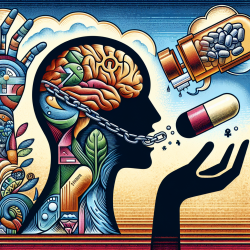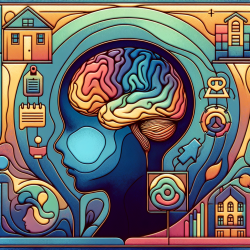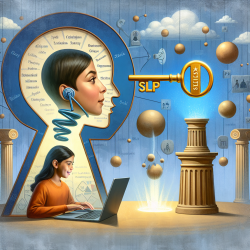Understanding the Distinction: Drug Dependence vs. Addiction
In the realm of medical diagnosis and treatment, the distinction between drug dependence and addiction is crucial. A recent article titled "Drug dependence is not addiction—and it matters" by M. Szalavitz et al., published in the Annals of Medicine, highlights the significant implications of conflating these two terms. This differentiation is not just academic but has real-world consequences, particularly in the field of speech-language pathology and other therapeutic practices.
Key Findings from the Research
The study underscores the inaccuracies in the International Classification of Diseases (ICD) codes, which often lead to misdiagnosis. The ICD codes have not kept pace with the current understanding of addiction, unlike the Diagnostic and Statistical Manual of Mental Disorders (DSM-5). This misalignment can result in a cascade of negative outcomes, including stigma, inappropriate treatment, and even legal repercussions.
In a study involving 520 American Veterans, only 57.7% of those diagnosed with "opioid use," "opioid abuse," or "opioid dependence" actually met the DSM-5 criteria for "opioid use disorder." This highlights the critical need for accurate diagnostic criteria to ensure effective treatment and harm reduction strategies.
Implications for Practitioners
For practitioners, especially those involved in online therapy services like TinyEYE, understanding these distinctions is vital. Misdiagnosis can lead to inappropriate therapy plans, which can adversely affect patient outcomes. Practitioners are encouraged to familiarize themselves with the DSM-5 criteria and advocate for the update of ICD codes to reflect current scientific understanding.
Actionable Steps
- Educate Yourself: Stay informed about the latest research and diagnostic criteria. Understanding the nuances between dependence and addiction can significantly impact your practice.
- Advocate for Change: Support initiatives that call for the update of ICD codes. Accurate coding is essential for proper diagnosis and treatment planning.
- Implement Evidence-Based Practices: Use data-driven approaches to develop therapy plans that address the specific needs of individuals with addiction or dependence issues.
Encouraging Further Research
The commentary by Szalavitz et al. concludes with a call for the ICD to update its codes. Practitioners are encouraged to delve deeper into this topic, as understanding the distinction between dependence and addiction is crucial for improving patient care and outcomes.
To read the original research paper, please follow this link: Drug dependence is not addiction—and it matters.










